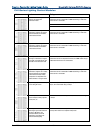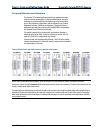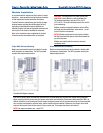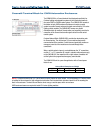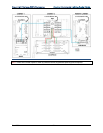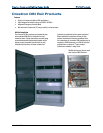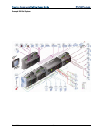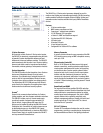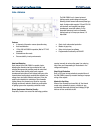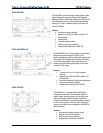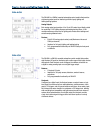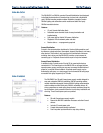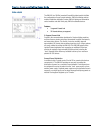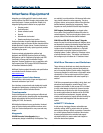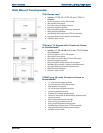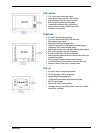
Commercial Lighting Design Guide DIN Rail Products
Doc. 4775A 51
DIN-1DIMU4
The DIN-1DIMU4 is a 4-channel universal
lighting control module designed to support
dimming of both forward and reverse phase type
loads. A single model supports 120 and 220-240
volt electronic and magnetic low voltage,
incandescent, neon/cold cathode, 2-wire
dimmable fluorescent, and non-dimmable
lighting loads up to 5 amps per channel, 10
amps total.
Features
4 channels of forward or reverse phase dimming
Auto load detection
120 to 240 Volt 50/60 Hz operation (Not for 277 VAC
operation)
Selectable non-dim mode
Extreme stability in noisy environments
Short circuit and overload protection
Master air-gap relay
Setup via front panel or software
Programmable functionality via DIN-AP2
Auto Load Detection
Each channel of the DIN-1DIMU4 is capable of auto-
detecting the dimmable load type connected to it and
selecting the appropriate operating mode to control that
load. Reverse phase (trailing edge) mode supports
incandescent and electronic low-voltage load types, while
forward phase (leading edge) mode handles magnetic low
voltage, neon, and other inductive load types. A non-dim
mode is also selectable for switching of non-dimmable
lighting fixtures. Any channel may be set for any mode,
allowing one dimmer module to handle any combination
of lighting types on four separately controlled circuits.
Phase-Synchronous Detection Circuitry
Proprietary Crestron zero-cross filter technology provides
superior immunity to noise on the power line, reducing
lamp flicker and compensating for fluctuations in line
voltage and frequency.
Short Circuit Protection
Built-in OCP (over current protection) prevents failure of
the DIN-1DIMU4 caused by excessive loading or improper
wiring of the outputs.
Master Air-Gap Relay
When all four channels are turned fully off, the internal
master relay automatically opens, providing air-gap
isolation that allows safe servicing and changing of light
bulbs on all four controlled circuits.



